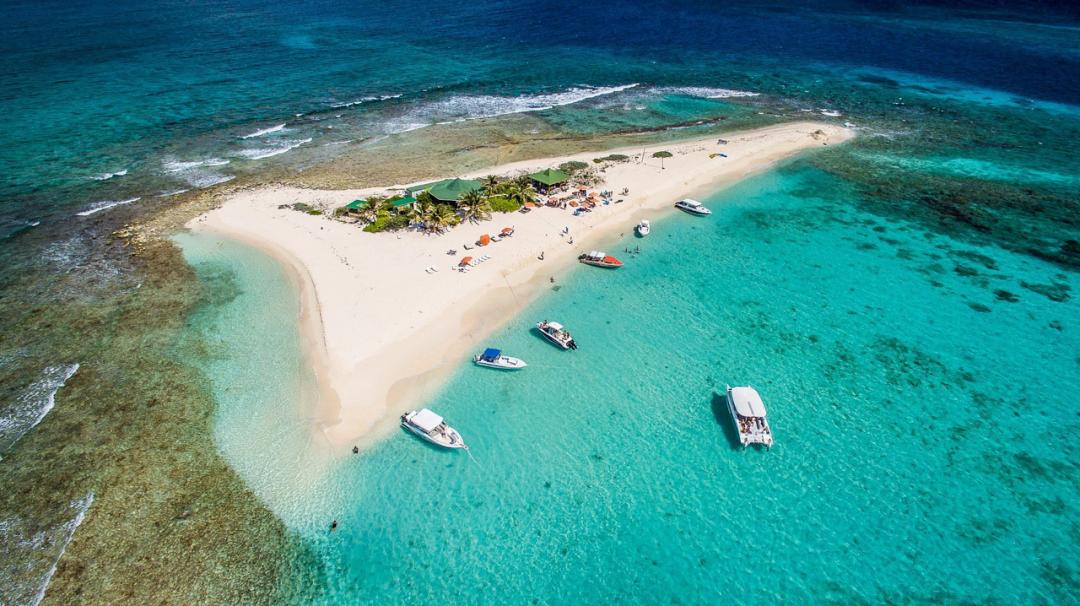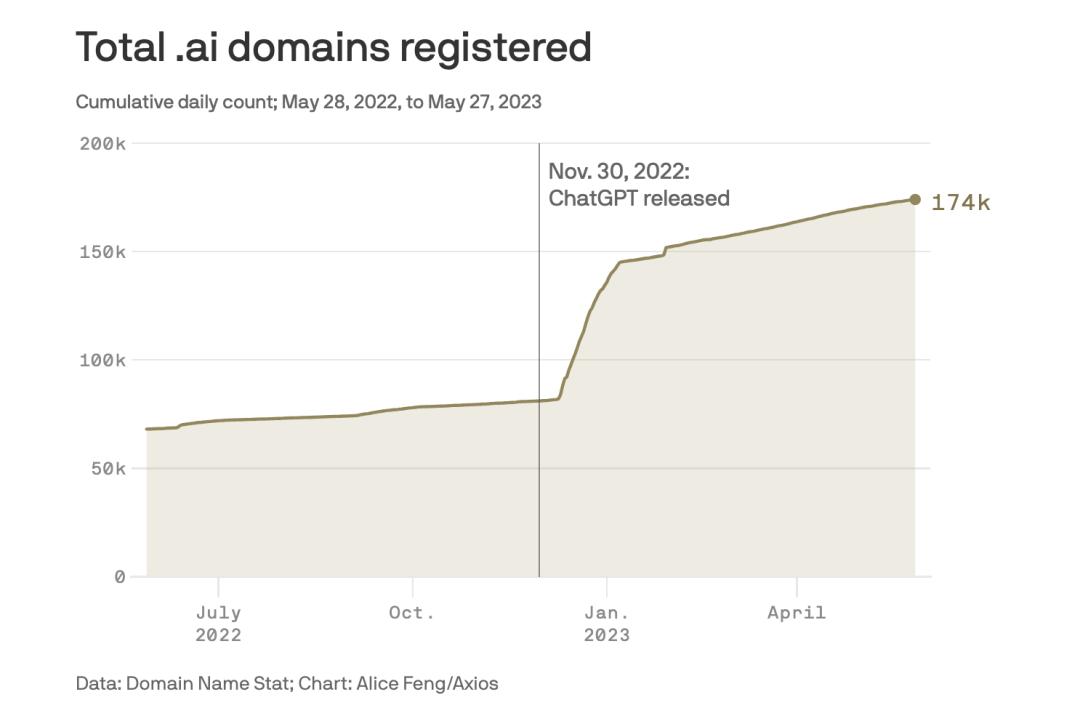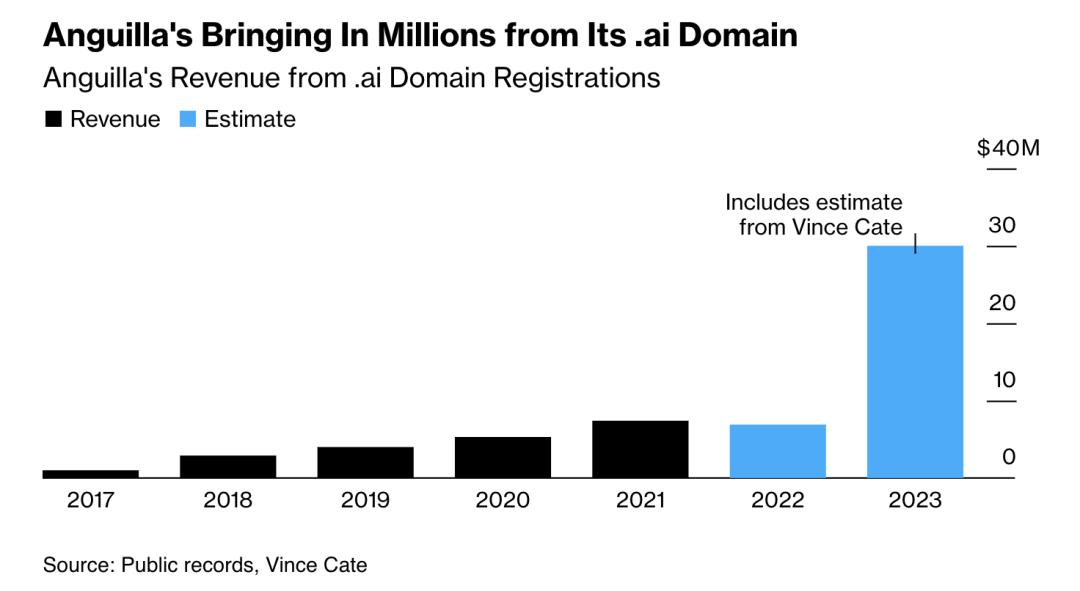Snatching '.AI' Domains Has Become a $30 Million Business
-
In 1848, a carpenter accidentally discovered gold flakes in a river in Coloma, California. Though he tried to keep it a secret, gold doesn't lie, sparking a gold rush that swept across America. Many flocked to California with dreams of striking it rich overnight. Between 1847 and 1870, San Francisco's population surged from 500 to 150,000, earning the city the nickname "Gold Mountain."
Gold miners working in harsh conditions often complained about their pants not being durable enough. Jewish merchant Levi Strauss spotted this business opportunity and invented the first pair of jeans—sturdy overalls made from tough canvas, reinforced with rivets for durability and featuring an extra small pocket to store valuables like gold. Thus, the Levi's brand was born.

To demonstrate the toughness of his jeans, Strauss staged a performance where two horses pulled at a pair of jeans, and the two-horse leather patch became Levi's iconic logo | Image source: levistrauss
Most people didn't strike gold, and even those who did rarely managed to hold onto their sudden wealth. The booming cities offered plenty of ways to spend money—bars, brothels, casinos... Strauss didn't join the competition; instead, he built a foolproof business: serving the competitors. According to the Los Angeles Times, by the time of his death, Strauss's assets amounted to $6 million, equivalent to about $20 million today (approximately 146 million RMB). As the famous saying goes: "During a gold rush, selling shovels is the most profitable business."
In today's AI gold rush, the small island of Anguilla in the Atlantic has, by chance, become the "shovel seller."

Anguilla | Image source: Tripadvisor
Like all tropical islands, Anguilla's specialties are sunshine and beaches. With arid land where crops struggle to grow and almost no natural resources, tourism has long been the backbone of its economy.
Since the 1990s, the development of the internet has given this small island nation an unexpected virtual asset—"ai" can stand for both Artificial Intelligence and Anguilla's country-code top-level domain (ccTLD).
AI technology has a long developmental history, dating back to the 1956 Dartmouth Conference where computer scientist John McCarthy first proposed the concept of "Artificial Intelligence." For decades, AI technology grew slowly and steadily, much like the adoption of ".ai" domain names. Anguilla earned some revenue from this, but not much.
Everything changed on November 30, 2022, when OpenAI released ChatGPT. Since then, all tech companies have been engaged in a race—scrambling for data, talent, GPUs, and domain names.
Leading this charge are companies like Stability.ai (parent company of Stable Diffusion), Elon Musk's X.ai, and Character.ai. Tech giants have also established their own AI pages, such as facebook.ai and microsoft.ai.

After the release of ChatGPT, registrations for .ai domains began to grow exponentially | Image source: axios
Vince Cate, who has been managing Anguilla's domain names since the 1990s, told Bloomberg that over the past year, the number of .ai domain registrations has nearly doubled, reaching over 280,000.
Like many commodities, domain name prices fluctuate. Every time a user registers a .ai domain through registrars like GoDaddy or NameCheap, the registrar must pay a fee to Anguilla. Before April 2023, this fee was $120 for two years, but it has now increased to $140.
According to Cate's estimates, Anguilla's revenue from domain registrations in 2023 will range between $25 million and $30 million. Just two years ago, this figure was only $8.3 million. While this pales in comparison to the billions of dollars in the AI industry, it's worth noting that Anguilla is a small island of just 91 square kilometers with a population of less than 20,000, and its tourism-dependent economy was hit hard during the pandemic.

Anguilla's revenue from domain registrations over the years, with the blue portion representing estimates | Image source: Bloomberg
According to Anguilla's 2023 fiscal forecast, its annual recurring revenue is estimated at $107 million. Even the lower end of Kate's predicted range at $25 million would account for a quarter of Anguilla's annual income.
Another island nation benefiting from this internet boom is Tuvalu in the Pacific. With just 26 square kilometers, Tuvalu is the fourth smallest sovereign nation globally.
Tuvalu's good fortune lies in its country code top-level domain (ccTLD) matching the abbreviation for television (TV). The initial $1 million earned from leasing this domain allowed Tuvalu to pay its United Nations membership fees in 2000. Today, the Tuvalu government receives approximately $10 million annually from GoDaddy, accounting for 8.4% of its annual revenue according to 2019 financial reports.
In some ways, domain registration resembles real estate in the digital world. Visionary individuals register promising domains, pay maintenance fees, and wait for the right opportunity. While typical resale prices range from a few dollars to tens of thousands, rare domains can command much higher prices.
In 2017, Elon Musk spent at least $5 million to reclaim x.com from PayPal. Similarly, he paid $11 million to acquire tesla.com for his electric vehicle company.

Elon Musk tweets celebration after reclaiming X.com domain | Image source: Twitter
At present, the hype around artificial intelligence has somewhat subsided, and some skepticism has emerged. However, one thing is certain: humanity is still in the early stages of artificial intelligence, which also means we are in the early phase of .ai domain registration.
For Anguilla, this could be a business opportunity that lasts for a hundred years.
